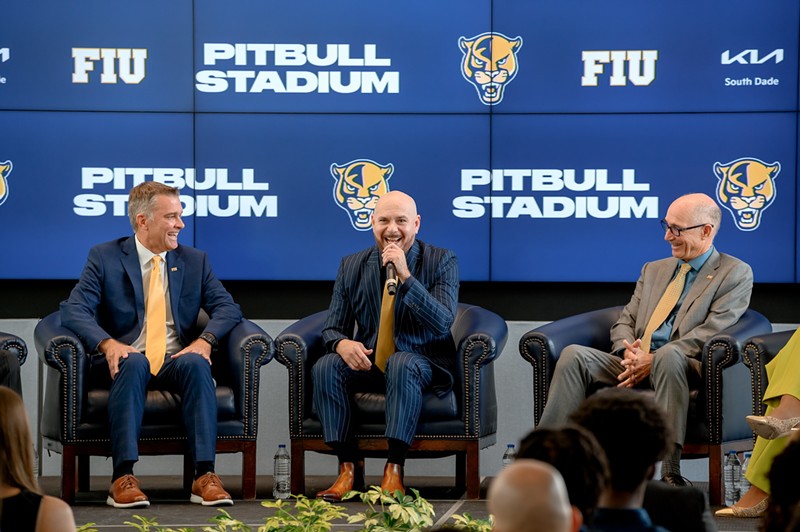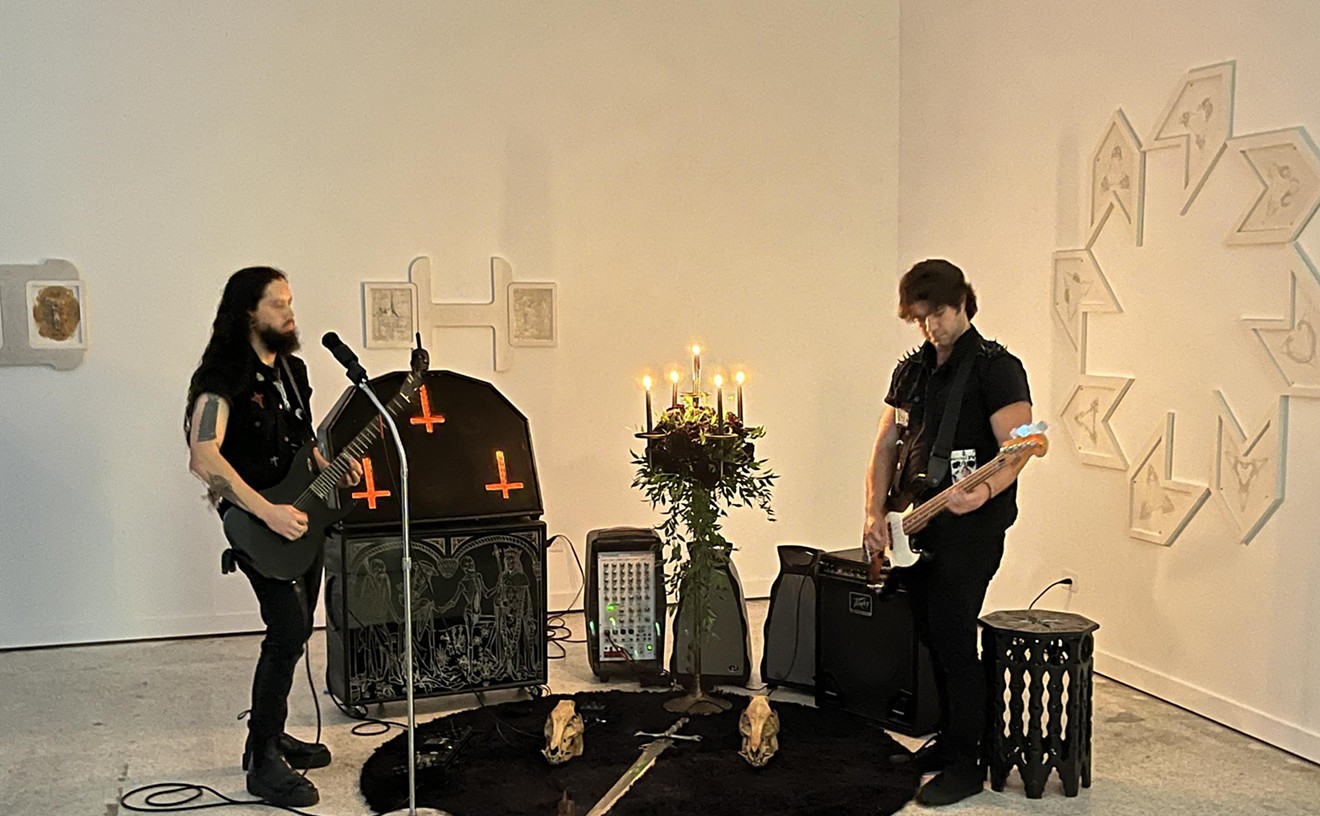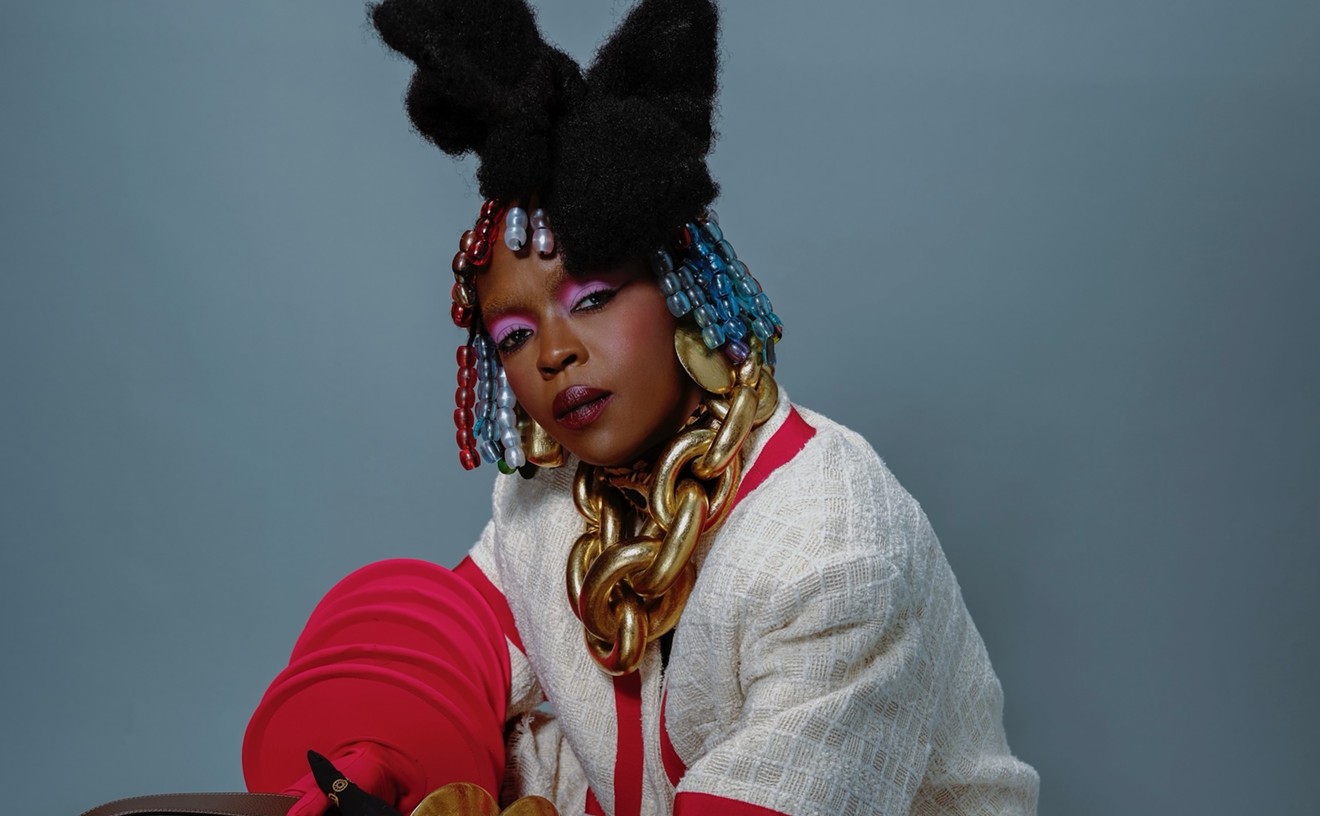Armando Christian Pérez, AKA Pitbull, the internationally acclaimed, Miami-bred rapper, has announced that Florida International University's football stadium at the Modesto A. Maidique Campus will be named Pitbull Stadium in a five-year, $6 million deal that also includes two suites for all football games, the curation of an original anthem, and other perks that celebrate Mr. 305 in his hometown.
If you're wondering how the Cuban-American entertainer can afford to spend millions of dollars in exchange for a university adorning his name on its stadium, well, music is only part of his revenue stream.
Over the past decade, Pérez has become just as known for his entrepreneurialism as his popular singles and guest spots, with investments in Norwegian Cruise Lines, the organic drink Halo, Espanita Tequila, the Miami Grill restaurant chain, the New York-based gym Grit Bxng, as well as becoming a minority owner in the NASCAR team Trackhouse Racing.
Though Pérez’s net worth sits at an estimated $100 million, he’s not keeping it all for himself. His involvement in charitable causes — including World Vision Foundation, Miami Children's Health Foundation, Save the Music Foundation, SLAM (Sports Leadership And Management) public charter schools, and Pencils of Promise Foundation — has contributed toward helping underprivileged children locally and worldwide.
Not bad for someone who was kicked out of high school for not having the correct address.
An important issue that Pitbull has not become involved in, however, is helping the very animals that are responsible for his namesake: pit bulls. In his autobiography, Pitbull: Mr Worldwide, the rapper explains his stage name. "The dog is too stupid to lose. And they're outlawed in Dade County. They're basically everything that I am. It's been a constant fight."
Last October, Miami Dade County's historical 34-year-old ban on the ownership of pit bulls was lifted by the state of Florida in an effort to help the strain on shelters, dog owners, and the breed itself from being potentially euthanized if found or reported within the territory. Originally, the county deemed pit bulls as dangerous after one attacked a 7-year-old girl in 1989. Although the state legislature passed a bill in 1990 prohibiting local governments from banning dogs based on breed, weight, or size, the '89 ban was grandfathered into the deal.
In addition to their strength and appearance, pit bulls have received a bad rap over the past few decades due to their unlawful association with illegal dog fighting and aggressive behavior due to human influence. During Miami-Dade County's ban, pit bull owners could have received a $500 fine, and their dogs could have been seized by Miami-Dade Animal Services and killed.
Now that the ban has been lifted, pit bulls ending up in shelters have a second chance at finding a home — but that doesn't mean shelters aren't struggling as the Miami-Dade Animal Services continues to face a major crisis with the overflow of shelters and lower-than-needed pet adoption rates.
As shelters throughout South Florida continue to see an overflow of abandoned, dumped, and formerly abused dogs, it seems like a no-brainer for Pérez to step up and lend his financial and promotional support toward helping pit bulls and all other animals trapped in the system.
It may be a proud moment for many Cuban-Americans and locals to see Miami's native son have a stadium with his name on it, but who is really benefiting? Pérez's contributions to pop culture and important causes are noteworthy, but there's more work to be done. If the name Pitbull is truly meaningful to the artist's identity, then he must step up and help his own.

Audio By Carbonatix
[
{
"name": "Air - MediumRectangle - Inline Content - Mobile Display Size",
"component": "19274298",
"insertPoint": "2",
"requiredCountToDisplay": "2",
"watchElement": ".fdn-content-body",
"astAdList": [
{
"adType": "rectangle",
"displayTargets": "mobile"
}
]
},{
"name": "Editor Picks",
"component": "17482312",
"insertPoint": "4",
"requiredCountToDisplay": "1",
"watchElement": ".fdn-content-body",
"astAdList": [
{
"adType": "rectangle",
"displayTargets": "desktop|tablet"
},{
"adType": "rectangle",
"displayTargets": "desktop|tablet|mobile"
}
]
},{
"name": "Inline Links",
"component": "18711090",
"insertPoint": "8th",
"startingPoint": 8,
"requiredCountToDisplay": "7",
"maxInsertions": 25
},{
"name": "Air - MediumRectangle - Combo - Inline Content",
"component": "17482310",
"insertPoint": "8th",
"startingPoint": 8,
"requiredCountToDisplay": "7",
"maxInsertions": 25,
"watchElement": ".fdn-content-body",
"astAdList": [
{
"adType": "rectangle",
"displayTargets": "desktop|tablet"
},{
"adType": "rectangle",
"displayTargets": "desktop|tablet|mobile"
}
]
},{
"name": "Inline Links",
"component": "18711090",
"insertPoint": "8th",
"startingPoint": 12,
"requiredCountToDisplay": "11",
"maxInsertions": 25
},{
"name": "Air - Leaderboard Tower - Combo - Inline Content",
"component": "17482313",
"insertPoint": "8th",
"startingPoint": 12,
"requiredCountToDisplay": "12",
"maxInsertions": 25,
"watchElement": ".fdn-content-body",
"astAdList": [
{
"adType": "leaderboardInlineContent",
"displayTargets": "desktop|tablet"
},{
"adType": "tower",
"displayTargets": "mobile"
}
]
}
]












